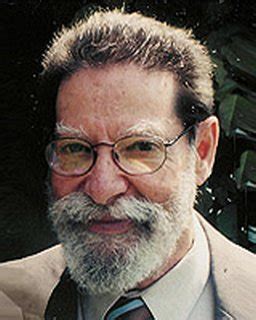A Quote by Martin Rees
I would support peaceful co-existence between religion and science because they concern different domains. Anyone who takes theology seriously knows that it's not a matter of using it to explain things that scientists are mystified by.
Related Quotes
Theology differs from science in many respects, because of its different subject matter, a personal God who cannot be put to the test in the way that the impersonal physical world can be subjected to experimental enquiry. Yet science and theology have this in common, that each can be, and should be defended as being investigations of what is, the search for increasing verisimilitude in our understanding of reality.
The notion that science does not concern itself with first causes - that it leaves the field to theology or metaphysics, and confines itself to mere effects - this notion has no support in the plain facts. If it could, science would explain the origin of life on earth at once - and there is every reason to believe that it will do so on some not too remote tomorrow. To argue that gaps in knowledge which will confront the seeker must be filled, not by patient inquiry, but by intuition or revelation, is simply to give ignorance a gratuitous and preposterous dignity.
This much I can say with definiteness - namely, that there is no scientific basis for the denial of religion - nor is there in my judgment any excuse for a conflict between science and religion, for their fields are entirely different. Men who know very little of science and men who know very little of religion do indeed get to quarreling, and the onlookers imagine that there is a conflict between science and religion, whereas the conflict is only between two different species of ignorance.
The antagonism between science and religion, about which we hear so much, appears to me to be purely factitiousfabricated, on the one hand, by short-sighted religious people who confound a certain branch of science, theology, with religion; and, on the other, by equally short-sighted scientific people who forget that science takes for its province only that which is susceptible of clear intellectual comprehension; and that, outside the boundaries of that province, they must be content with imagination, with hope, and with ignorance
I firmly believe that the method which sets theological theories against scientifically ascertained facts, is fatal to the current theology and injurious to the spirit of religion; and that the method which frankly recognizes the facts of life, and appreciates the spirit of the scientists whose patient and assiduous endeavor has brought those facts to light, will commend the spirit of religion to the new generation, and will benefit--not impair--theology as a science, by compelling its reconstruction.
It is often argued that religion is valuable because it makes men good, but even if this were true it would not be a proof that religion is true. That would be an extension of pragmatism beyond endurance. Santa Claus makes children good in precisely the same way, and yet no one would argue seriously that the fact proves his existence. The defense of religion is full of such logical imbecilities.
Science has only two things to contribute to religion: an analysis of the evolutionary, cultural, and psychological basis for believing things that aren't true, and a scientific disproof of some of faith's claims (e.g., Adam and Eve, the Great Flood). Religion has nothing to contribute to science, and science is best off staying as far away from faith as possible. The "constructive dialogue" between science and faith is, in reality, a destructive monologue, with science making all the good points, tearing down religion in the process.
Science is like society and trade, in resting at bottom upon a basis of faith. There are some things here, too, that we can not prove, otherwise there would be nothing we can prove. Science is busy with the hither-end of things, not the thither-end. It is a mistake to contrast religion and science in this respect, and to think of religion as taking everything for granted, and science as doing only clean work, and having all the loose ends gathered up and tucked in. We never reach the roots of things in science more than in religion.
Once upon a time, science, philosophy, and theology were disciplines largely undifferentiated from one another, and proving the existence of God was a fairly commonplace intellectual exercise. But as the scientific method became increasingly refined, particularly through the nineteenth century, science and religion grew apart.

































